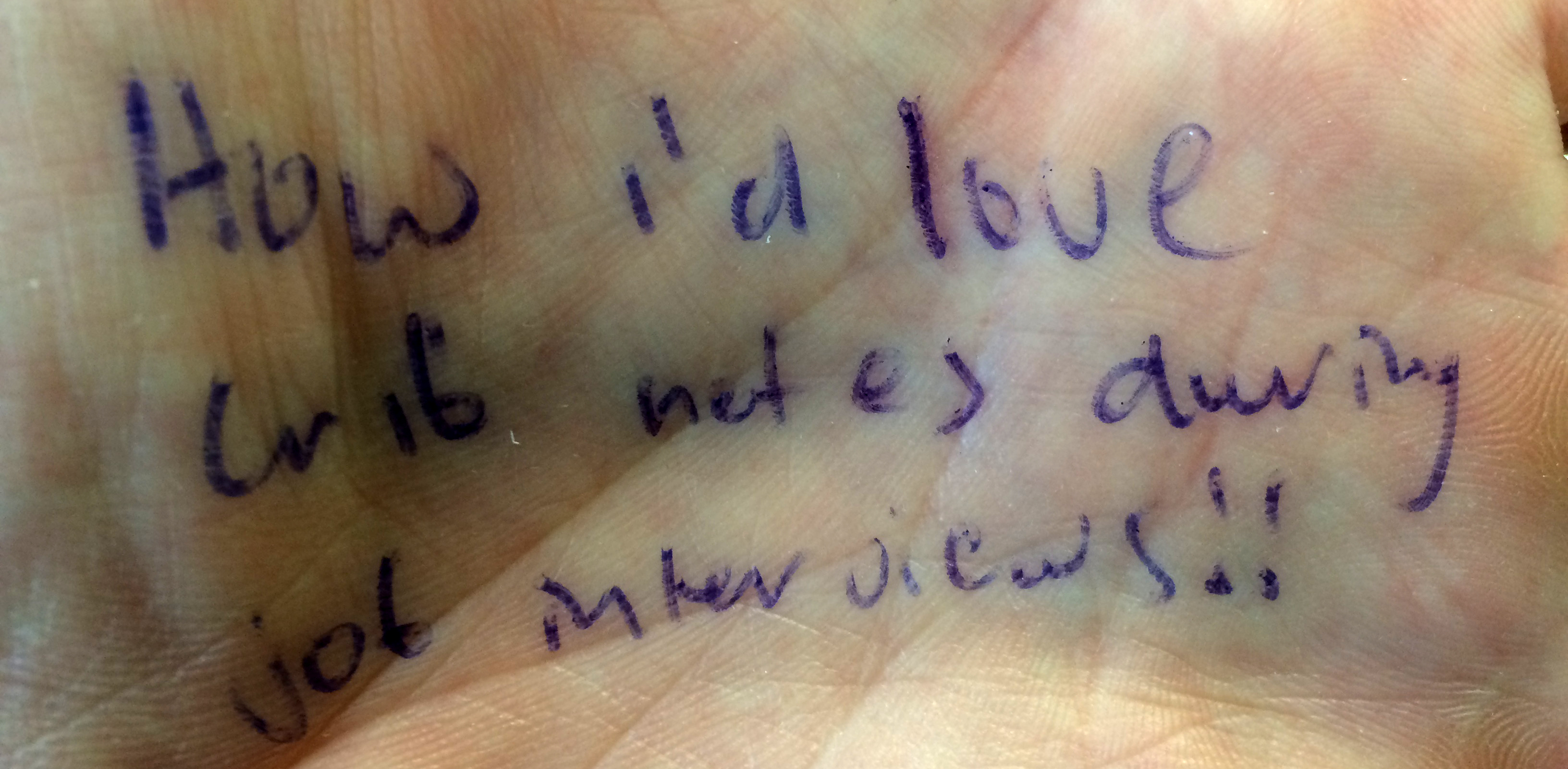Like any other situation where you wish to convey accurate and important information, documentation/notes/written examples rule.
Attending a job interview is a very unnatural situation. Once in a role, you have access to documentation, procedures, reference materials, pre-made presentations etc to get your point across. In interviews you have your memory, your dress sense and your people skills. To add confusion to the mix, recent studies are showing memory can be flawed so how am I to know an example I am providing actually happened, or was directly related to me? Notes! That is how!
Frustratingly, my lifetime hit rate stands at 25 job interviews for six job offers. Probably a decent hit rate for an average of 1.6 interviews a year. Show me someone who is fantastic at something they do every 7 months for 30-60 minutes. Even experts need to continue performing tasks they are good at to maintain their skills. To address this, I practice interviews using a list of questions and answers I have amassed over the years. The last time I reviewed them, they were rather unwieldy, so I identified the key themes and chucked them. Now the Q&A’s much more memorable.
The closest interviews get to real life is a date. Both interested parties may sit across from each other, sometimes with beverage, and ask questions in what is, or should be a back and forth, get to know you manner. Unless the interview’s been a total disaster, they invariably end with a “we’ll be in touch”. Sometimes, they never call you back, which is rude. Both processes rely on charm, memory and the ability to wing it. Not a good recipe for success unless the rapport is great. Flirting’s fine on a date but would not go down well in an interview – I’m not here to “clean ze pool”.
What do you do when you want to give an important presentation, set up a meeting, make a speech, train an individual or group, conduct an audit, talk about serious issues or anything else where you need to get important, accurate information across or follow a set course of action? You use notes. At an interview, one is not even allowed the luxury of prompt cards.
Eg:
- Example of Integrity: Not back dating when asked…
- Example of Continuous Improvement: I build that into the every day…
- Have you ever made a mistake? In 1999 I tested a sample without reading the label correctly…
- How do you deal with difficult people? I’ve never encountered one and here is why…
No matter how hard I prepare, I am sure to think of something new to an answer in an interview and insert that into my answers. I’m sure this makes me appear to be a scatter brained idiot (which of course runs through my mind at the time). I’ll also be examining my body language and what I’ve just said for ABSOLUTE truth 20 years from now and be second guessing myself and maybe looking irritated at a question when I’m irritated at myself and trying not to speak too fast, or mumble, or to itch my nose or sit like Ray Martin does during an interview.
Once I get back into a position when I’m conducting the interviews, I’m considering allowing those I interview to bring along presentations or crib notes so they can tell me what they have done and why it is to my benefit to add them to my team. I’m sure that’ll be an interesting discussion if a HR department is involved in the process.
In the meantime, I’ll continue improving my answers to predicted questions and practising being interviewed.

